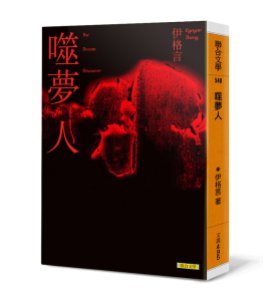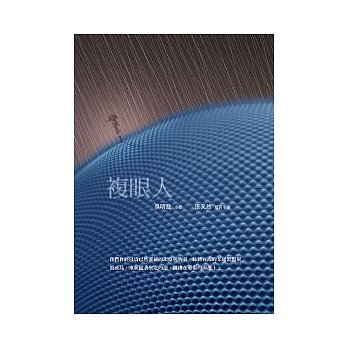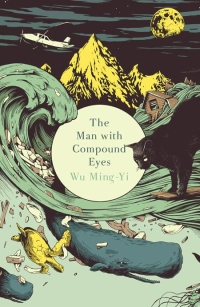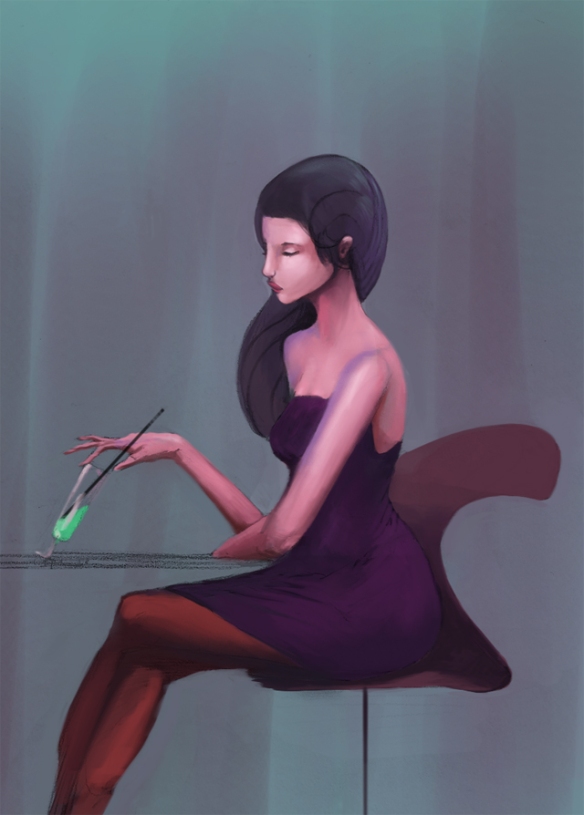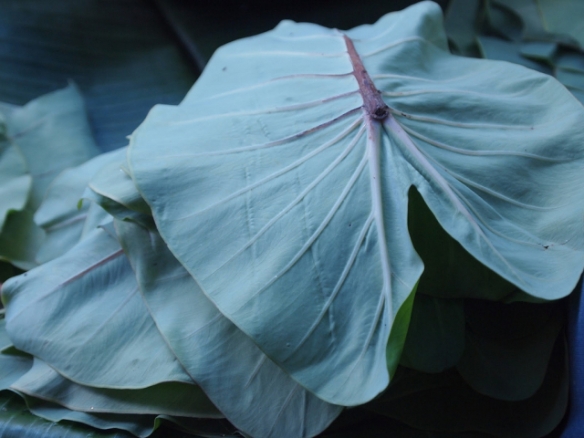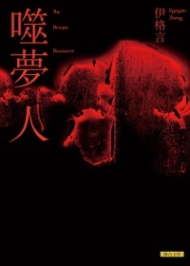I’ve been making an effort to learn more Taiwanese lately, and have been trying to find some sort of pattern between Mandarin and Taiwanese that can provide me with an alternative method than just memorizing by heart. Some Taiwanese I’ve picked up from TV, KTV songs and from the Human Condition (《人間條件》 series of plays that I researched for my masters, but my vocabulary is limited to the very basic at the moment, so I hope that by starting a blog I’ll be more motivated. My approach to the language is not going to be scientific, but rather I’m going to rely on my own perceptions to build up an idea of how grammar and pronunciation rules work on my own terms, although I’m familiar with some of the rules around the language, as we were taught a limited amount as part of my master program.
Most of the phrases I’ve learned so far have only been simple greetings, basic common phrases or insults, as below:
你好: lí–hó [Click on each syllable to hear it] (Strangely enough, to my ear the direction of the tone mark seems to be counter-intuitive, as I would describe it as a slowly falling 4th tone.) – Hello
Going to test a few theories, as I continue learning:
你
we see “n” turn to “l” [and this may be limited to a third tone in Mandarin when followed by an “i” or may not] [ㄋ->ㄌ]
“i” (zhuyinㄧ) remains similar in Mandarin and Taiwanese [which may be limited to when preceded by an “n” in Mandarin and an “l” in Taiwanese] [ㄧ->ㄧ]
好
“h” remains similar in both Taiwanese and Mandarin [which may be limited to when it’s followed by “ao” in Mandarin and “o” in Taiwanese or not] [ㄏ->ㄏ]
“ao” changes to “o” [which may be limited to when it’s preceded by “h”] [ㄠ->ㄛ]
Tones: I know that in speech, tones are affected by tones sandhi, but for the minute I’m going to ignore this, as I’m taking individual vocabulary and tone marks from a dictionary – later I’ll try and examine this in more depth
Tones: Third tones in Mandarin change to second tone (high-falling – ˥˧ (53) [Tainan] or falling – ˥˩ (51)[Taipei]) in Taiwanese [3->2]
這個人我熟似 chit-ê lâng góa se̍k-sāi (我認識/熟悉) – I know that guy/person
這
“zh” in Mandarin changes to “j”/”ch” in Taiwanese [which may be limited to when it’s followed by “e” in Mandarin or “it” in Taiwanese] [ㄓ->ㄐ]
“e” in Mandarin changes to “it” in Taiwanese [which may be limited to when it’s preceded by “zh” in Mandarin or “j/ch” in Taiwanese] [ㄜ->ㄧㄊ]
Tones: Fourth tone in Mandarin changes to fourth tone (low stopped – ˨˩ʔ (21) [Tainan] or mid-stopped – ˧˨ʔ (32) [Taipei] in Taiwanese [4->4]
個
“g” in Mandarin disappears [which may be limited when followed by “e” (ㄜ) in Mandarin] [ㄍ->_]
“e” in Mandarin turns into “e” (sounds like ei ㄟ in Mandarin) in Taiwanese [May be limited to when it’s preceded by a “g” in Mandarin, and has no final] [ㄜ->ㄟ]
Tones: neutral tone in Mandarin changes to fifth tone (rising – ˨˦ (25) [Tainan] or ˩˦ to ˨˦ (14~24) [Taipei]) in Taiwanese [5->5]
人
“r” in Mandarin turns into “l” in Taiwanese [may be limited to when followed by “en” in Mandarin or “ang” in Taiwanese] [ㄖ->ㄌ] *Note* I’ve also head 人 is pronounced “jîn” in different contexts
“en” in Mandarin turns into “ang” in Taiwanese [may be limited to when preceded by “r” in Mandarin and “l” in Taiwanese] [ㄣ->ㄤ]
Tones: Second tone in Mandarin turns into fifth tone (rising – ˨˦ (25) [Tainan] or ˩˦ to ˨˦ (14~24) [Taipei]) in Taiwanese [2->5]
我
“w” in Mandarin turns into “g” or “gu” in Taiwanese [may be limited to when followed by “o” (ㄛ) or “oa” (ㄨㄚ) in Taiwanese] [ㄨ (initial) -> ㄍㄨ/ㄍ]
“o” in Mandarin turns into “oa” in Taiwanese [may be limited to when preceded by a w in Mandarin or a “g” in Taiwanese] [(ㄨ)ㄛ->ㄨㄚ]
Tones: Third tones in Mandarin change to second tone (high-falling – ˥˧ (53) [Tainan] or falling – ˥˩ (51)[Taipei]) in Taiwanese [3->2]
熟
“sh” in Mandarin changes to “s” (sounds like sh) in Taiwanese [limited to followed by “ou” in Mandarin or “ek” in Taiwanese] [ㄕ->ㄕ]
“ou” in Mandarin changes into “ek” in Taiwanese [limited to following “sh” in Mandarin] [ㄡ->ㄧㄎ]
Tones: Second tone in Mandarin turns into eighth tone (high stopped –˥ʔ (5) [Tainan] or high stopped – ˦ʔ (4) [Taipei]) in Taiwanese [2->8]
似
“s” in Mandarin changes to “s” in Taiwanese [may limit to preceding “i” in Mandarin or “ai” in Taiwanese] [ㄙ->ㄙ]
“i” in Mandarin changes to “ai” in Taiwanese [may limit to following “s” and “sh”] [~(i)->ㄞ]
Fourth tone in Mandarin turns into seventh tone (mid – ˨ (22) [Tainan] or mid- ˧ (33) [Taipei]) in Taiwanese [4->7]
我相信 góa siang-sìn/siong-sìn – I believe
我(see above)
相
“x” (ㄒ) in Mandarin turns into “s” (sh) in Taiwanese [which may be limited to when followed by “i” with nasal final] [ㄒ->ㄒ]
“iang” in Mandarin remains as “iang” in Taiwanese [may limit to following “x”] [ㄧㄤ->ㄧㄤ]
or “iang” in Mandarin turns into “iong” in Taiwanese [may limit to following “x”] [ㄧㄤ->ㄩㄥ]
Tones: First tone in Mandarin turns into first tone (high – ˦ (44) [Tainan] or high – ˥ (55) [Taipei]) in Taiwanese [1->1]
信
“x” (ㄒ) in Mandarin turns into “s” (sh) in Taiwanese [which may be limited to when followed by “i” with nasal final] [ㄒ->ㄒ]
“in” turns into “in” in Taiwanese (sound the same) [ㄧㄣ->ㄧㄣ]
Tones: Fourth tone in Mandarin turns into third tone (low – ˩ (11) [Tainan] or low-falling – ˧˩ to ˨˩ (31~21) [Taipei]) [4->3]
白癡 pe̍h-chhi – Idiot
白
“b” in Mandarin turns into “p” in Taiwanese (though may be the same sound) [may limit to preceding “ai”] [ㄅ->ㄅ]
“ai” in Mandarin turns into “eh” (sounds like “ei” ㄟ) [may limit to following “b”] [ㄞ->ㄟ]
Tones: Second tone in Mandarin turns into eighth tone (high stopped –˥ʔ (5) [Tainan] or high stopped – ˦ʔ (4) [Taipei]) in Taiwanese [2->8]
痴
“ch” in Mandarin turns into “chh” (pronounced similar to q/ㄑ in Mandarin) in Taiwanese [may limit to preceding “i”] [ㄔ->ㄑ]
“i” (~) in Mandarin turns into “ih” in Taiwanese (sounds like ㄧ (i)) [may limit to following “ch” in Mandarin or “chh” in Taiwanese] [~(i)->ㄧ]
Tones: First tone in Mandarin turns into first tone (high – ˦ (44) [Tainan] or high – ˥ (55) [Taipei]) in Taiwanese [1->1]
流目屎 lâu-ba̍k-sái (流眼淚) – To cry
流
“l” in Mandarin remains “l” in Taiwanese [may limit to followed by “iu”] [ㄌ->ㄌ]
“iu” in Mandarin becomes “au” in Taiwanese [may limit to preceded by “l”] [ㄧㄡ->ㄠ]
Tones: Second tone in Mandarin turns into fifth tone (rising – ˨˦ (25) [Tainan] or ˩˦ to ˨˦ (14~24) [Taipei]) in Taiwanese [2->5]
目
“m” in Mandarin becomes “b” in Taiwanese [may be limited to preceding “u” in Mandarin or “ak” in Taiwanese] [ㄇ->ㄅ*nasal]
“u” in Mandarin becomes “ak” in Taiwanese [may be limited to following “m” in Mandarin or “(m)b” in Taiwanese] [ㄨ->ㄚㄎ]
Tones: Fourth tone in Mandarin becomes eighth tone (high stopped –˥ʔ (5) [Tainan] or high stopped – ˦ʔ (4) [Taipei]) in Taiwanese [4->8]
“sh” in Mandarin becomes “s” in Taiwanese [may be limited to preceding ~(i)] [ㄕ->ㄙ]
“i” in Mandarin becomes “ai” in Taiwanese [may be limited to following “sh” and “s”] [~(i)->ㄞ]
The list goes on, but I’ll save the two Taiwanese songs I know for later posts. Below are a list of theoretical rules for shifting between Mandarin and Taiwanese, most of which are obviously not the case, but I will improve upon it as I go along:
| [~(i)->ㄞ] |
preceding ㄙ |
似 |
屎 |
|
|
|
|
|
| [~(i)->ㄧ] |
preceded by ㄔor ㄕ or ㄙ |
痴 |
是 |
死 |
|
|
|
|
| [~i->ㄨ] |
before ㄙ |
思 |
|
|
|
|
|
|
| [1->1] |
|
相 |
痴 |
心 |
思 |
風 |
中 |
花 |
| [1->8] |
|
一 |
|
|
|
|
|
|
| [2->2] |
|
啥 |
|
|
|
|
|
|
| [2->5] |
|
人 |
流 |
頭 |
眠 |
無 |
情 |
叢 |
| [2->8] |
|
白 |
熟 |
|
|
|
|
|
| [3->2] |
|
你 |
好 |
我 |
死 |
阮 |
|
|
| [3->4] |
|
骨 |
|
|
|
|
|
|
| [4->3] |
|
信 |
看 |
|
|
|
|
|
| [4->4] |
|
這 |
物 |
|
|
|
|
|
| [4->7] |
|
似 |
是 |
夢 |
夜 |
念 |
|
|
| [4->8] |
|
目 |
|
|
|
|
|
|
| [5->5] |
|
個 |
|
|
|
|
|
|
| [ㄅ->ㄅ] |
followed by ㄞ |
白 |
|
|
|
|
|
|
| [ㄆ->ㄅ] |
before ㄤ |
旁 |
|
|
|
|
|
|
| [ㄇ->ㄅ*nasal] |
followed by ㄨ,ㄧㄢ, ㄥ |
目 |
眠 |
夢 |
面 |
|
|
|
| [ㄈ->ㄏ] |
followed by ㄥ |
風 |
|
|
|
|
|
|
| [ㄉ->ㄉ] |
before ㄚ |
大 |
|
|
|
|
|
|
| [ㄊ->ㄊ] |
followed by ㄡ |
頭 |
|
|
|
|
|
|
| [ㄋ->ㄌ] |
followed by ㄧ, ㄧㄢ |
你 |
念 |
|
|
|
|
|
| [ㄌ->ㄌ] |
followed by ㄧㄡ |
流 |
|
|
|
|
|
|
| [ㄍ->_] |
followed by ㄜ |
個 |
|
|
|
|
|
|
| [ㄍ->ㄍ] |
followed by ㄨ, ㄨㄚ |
骨 |
瓜 |
|
|
|
|
|
| [ㄎ->ㄎ] |
followed by ㄢ |
看 |
|
|
|
|
|
|
| [ㄏ->ㄏ] |
followed by ㄠ, ㄨㄚ |
好 |
花 |
|
|
|
|
|
| [ㄐ->ㄎ] |
followed by ㄧㄠ |
腳 |
|
|
|
|
|
|
| [ㄑ->ㄐ] |
followed by ㄧㄥ |
情 |
|
|
|
|
|
|
| [ㄒ->ㄒ] |
followed by ㄧㄤ |
相 |
西 |
心 |
|
|
|
|
| [ㄓ->ㄉ] |
followed by ㄨㄥ |
中 |
|
|
|
|
|
|
| [ㄓ->ㄐ] |
followed by ㄜ |
這 |
|
|
|
|
|
|
| [ㄓ->ㄗ] |
followd by ㄤ |
莊 |
|
|
|
|
|
|
| [ㄔ->ㄑ] |
followed by ~ |
痴 |
|
|
|
|
|
|
| [ㄕ->ㄕ] |
followed by ~(i), a |
是 |
啥 |
|
|
|
|
|
| [ㄕ->ㄙ] |
followed by ~(i) |
屎 |
|
|
|
|
|
|
| [ㄖ->ㄌ] |
followed by ㄣ |
人 |
|
|
|
|
|
|
| [ㄖ->ㄍ] |
followed by ㄨㄢ |
阮 |
|
|
|
|
|
|
| [ㄖ->ㄐ] |
followed by ㄣ |
人 |
|
|
|
|
|
|
| [ㄘ->ㄗ] |
followed by ㄨㄥ |
欉 |
|
|
|
|
|
|
| [ㄙ->ㄕ] |
followed by ~(i) |
死 |
|
|
|
|
|
|
| [ㄙ->ㄙ] |
followed by ~ |
似 |
|
|
|
|
|
|
| [ㄚ->ㄧㄚ(n)] |
preceded by ㄕ |
啥 |
|
|
|
|
|
|
| [ㄚ->ㄨㄚ] |
before ㄉ |
大 |
|
|
|
|
|
|
| [ㄛ->ㄨㄚ] |
preceded by ㄨ |
我 |
|
|
|
|
|
|
| [ㄜ->ㄟ] |
preceded by ㄍ |
個 |
|
|
|
|
|
|
| [ㄜ->ㄧㄊ] |
preceded by ㄓ |
這 |
|
|
|
|
|
|
| [ㄞ->ㄟ(h)] |
preceded by ㄅ |
白 |
|
|
|
|
|
|
| [ㄡ->ㄠ] |
preceded by ㄊ |
頭 |
|
|
|
|
|
|
| [ㄡ->ㄧㄎ] |
preceded by ㄕ |
熟 |
|
|
|
|
|
|
| [ㄢ->ㄨㄚ~n] |
preceded by ㄎ |
看 |
|
|
|
|
|
|
| [ㄣ->ㄤ] |
preceded by ㄖ |
人 |
|
|
|
|
|
|
| [ㄣ->ㄧㄣ] |
preceded by ㄖ |
人 |
|
|
|
|
|
|
| [ㄤ->ㄧㄣ] |
after ㄆ |
旁 |
莊 |
|
|
|
|
|
| [ㄥ->ㄤ] |
preceded by ㄇ |
夢 |
|
|
|
|
|
|
| [ㄥ->ㄨㄥ] |
preceded by ㄈ |
風 |
|
|
|
|
|
|
| [ㄧ->ㄐ] |
isolated |
ㄧ |
|
|
|
|
|
|
| [ㄧ->ㄧ] |
preceded by ㄋ |
你 |
|
|
|
|
|
|
| [ㄧ->ㄧㄊ] |
isolated |
一 |
|
|
|
|
|
|
| [ㄧ->ㄨㄚ] |
isolated |
倚 |
|
|
|
|
|
|
| [ㄧㄝ->ㄧㄚ] |
isolated |
夜 |
|
|
|
|
|
|
| [ㄧㄠ->ㄚ] |
preceded by ㄐ |
腳 |
|
|
|
|
|
|
| [ㄧㄡ->ㄠ] |
preceded by ㄌ |
流 |
|
|
|
|
|
|
| [ㄧㄢ->ㄧㄣ] |
preceded by ㄇ |
眠 |
面 |
|
|
|
|
|
| [ㄧㄣ->ㄧㄣ] |
preceded by ㄒ |
信 |
|
|
|
|
|
|
| [ㄧㄤ->ㄧㄤ] |
preceded by ㄒ |
相 |
|
|
|
|
|
|
| [ㄧㄤ->ㄩㄥ] |
preceded by ㄒ |
相 |
|
|
|
|
|
|
| [ㄧㄥ->ㄧㄥ] |
preceded by ㄑ |
情 |
|
|
|
|
|
|
| [ㄨ (initial) -> ㄍㄨ/ㄍ] |
followed by ㄛ |
我 |
|
|
|
|
|
|
| [ㄨ->ㄚㄎ] |
preceded by ㄇ |
目 |
|
|
|
|
|
|
| [ㄨ->ㄛ] |
isolated |
無 |
|
|
|
|
|
|
| [ㄨ->ㄧ(h)] |
preceded by ㄨ(initial) |
物 |
|
|
|
|
|
|
| [ㄨ->ㄨㄊ] |
preceded by ㄍ |
骨 |
|
|
|
|
|
|
| [ㄨ(initial)->ㄅ] |
isolated |
無 |
|
|
|
|
|
|
| [ㄨ(initial)->ㄇ] |
followed by ㄨ |
物 |
|
|
|
|
|
|
| [ㄨㄚ->ㄨㄟ] |
preceded by ㄍ, ㄏ |
瓜 |
花 |
|
|
|
|
|
| [ㄨㄢ->ㄨㄣ] |
preceded by ㄖ |
阮 |
|
|
|
|
|
|
| [ㄨㄥ->ㄤ] |
preceded by ㄘ |
欉 |
|
|
|
|
|
|
| [ㄨㄥ->ㄩㄥ] |
preceded by ㄓ |
中 |
|
|
|
|
|
|


